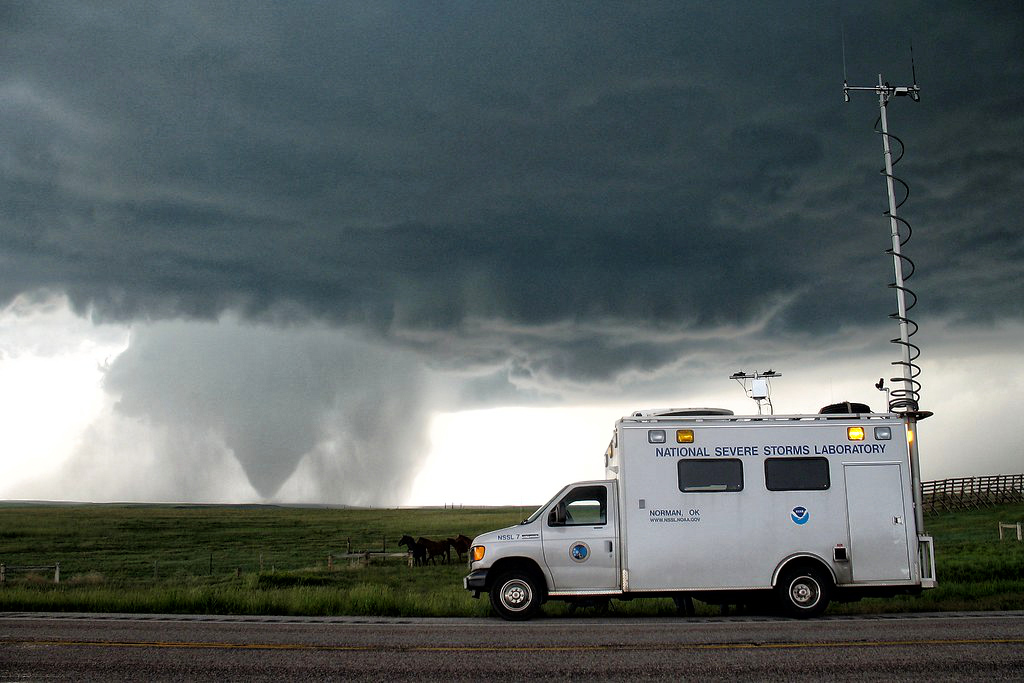The study of the atmosphere and specifically the weather, which involves studying and understanding changes in temperature, wind, air pressure, and water vapor.
In meteorology it is especially the lowest part of the atmosphere, the troposphere, that is of interest. The layers above only have a limited influence on the weather at the Earth's surface, for example, during hurricanes and tornadoes.
Meteorology is focused on understanding how different processes and changes in the atmosphere create the weather we experience. Meteorology is also about forecasting the weather in the near future. Climatology, on the other hand, is the study of long term weather patterns that characterize a climate.
Meteorologists use a range of methods and observations, from simple local temperature readings to advanced weather satellites covering the entire globe. The collected data is processed by computers using advanced models for producing weather forecasts.
Since the majority of human society and activity is to some extent influenced by the weather, forecasts are of great value. Weather forecasts are used in areas such as shipping, aviation, traffic, agriculture, fishery, tourism, plus many other areas directly or indirectly affected by the weather.
Meteorologists share weather observations through the United Nations network, World Meteorological Organization, enabling more accurate models and forecasts.
